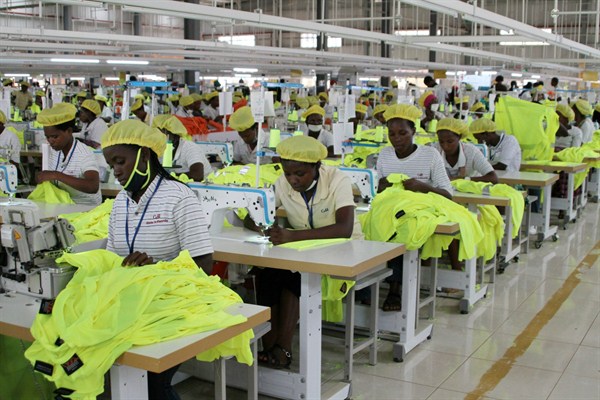Leaders from across Africa gathered in Niamey, the capital of Niger, earlier this month to officially launch the African Continental Free Trade Area, or AfCFTA. The sweeping agreement, which covers 54 out of 55 African Union members, is designed to boost intra-African trade and eventually create a single African market for goods and services. It has been called a potential “game changer” for Africa, but member states must now complete the hard work of implementing the deal and negotiating specific reductions in tariffs and non-tariff barriers to trade. In an email interview with WPR, Trudi Hartzenberg, the executive director of the Trade Law Center in South Africa, discusses the most significant obstacles to the AfCFTA’s implementation and how member states can overcome them.
World Politics Review: How significant is the AfCFTA for intra-African trade? What other benefits is it expected to bring?
Trudi Hartzenberg: The objectives of the AfCFTA are to boost intra-Africa trade, to create a single African market for goods and services and to promote the movement of capital and people across the continent. African countries, in general, trade much more with global partners than with other African countries. Currently, intra-Africa trade stands at only about 17 percent of total trade on the African continent. Intra-Africa trade is also highly concentrated within the existing regional economic communities, which overlap with each other. For example, more than half of intra-Africa trade takes place within the Southern African Customs Union, and all five of its members also belong to the larger Southern African Development Community, or SADC. South Africa is the largest economy in both blocs, and plays a key role as a driver of trade in these regional economic communities and is therefore also a key driver of intra-Africa trade.

